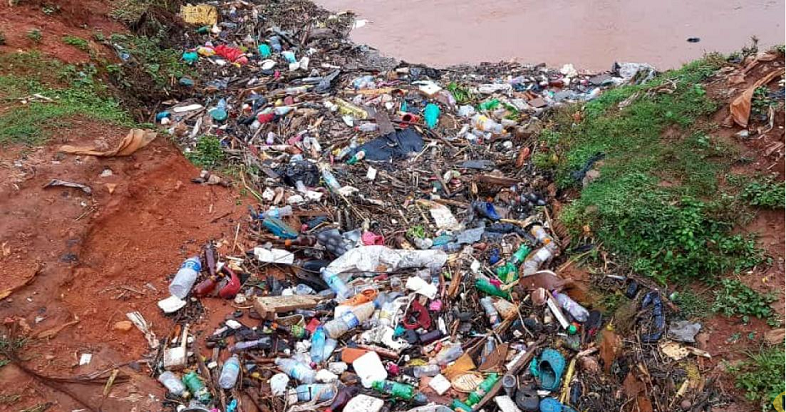Officials from UCDA and NaCORI explain to Rosemary Namayanja, the NRM Deputy Secretary General, the ongoing research in coffee and cocoa
The National Resistance Movement (NRM) Deputy Secretary General, Rosemary Namayanja, has applauded scientists at the National Coffee Research Institute (NaCORI) for great research in coffee and cocoa.
NaCORI is one of the 16 Public Agricultural Research Institutes under the umbrella of the National Agricultural Research Organisation (NARO). NaCORI’s mandate is to conduct and manage basic and applied research of strategic nature and national importance in all fields pertaining to coffee and cocoa. NaCORI came into existence in 2014 in response to the National Coffee Policy (2013).
“I’m impressed by the level of research and the technical capacities of the scientists here. With better funding, we can realise the potential in the two cash crops, coffee and cocoa,” Namayanja said during her courtesy visit to NaCORI in Kituza, Mukono district last Wednesday.
It is important to note that NaCORI is Uganda’s premier Coffee and Cocoa Research Institution. One of NaCORI’s key milestones is that they developed the 10 Robusta Coffee Wilt Disease-resistant (CWDr) varieties that saved the coffee industry from the verge of collapse following the devastating wilt disease that wiped out over 50% of the coffee tree population in the country.
The clones named: KRs (Kituza Robusta) are resistant to coffee wilt disease, tolerant to leaf rust, produce large beans and have higher yield compared to the traditional coffee trees. Farmers can get a mean yield of 3,700kg (hulled coffee) per hectare/year.
Due to their excellent performance in the field, the KR lines are in high demand from coffee farmers across the country.
However, the rate of multiplication remains low due to limited funding to NaCORI.
To solve the problem, NaCORI is conducting research on using tissue culture technology to multiply the new varieties. The results are promising.
“I have seen the great work you are doing and it is our responsibility now to sensitize our fellow leaders and citizenry about the research happening here and how it can support the realization of the potential in Uganda’s coffee from the farm to the cup,” Namayanja said in reference to the purpose of her visit to the Institute.
“I like it that the research is aimed at solving issues on the ground. I believe that if scientists at NaCORI are supported fully, they can produce millions and millions of seedlings. This is a highly specialized sector. As a government, what we need is to increase production. That way, farmers will earn from the quality. So, funding to these scientists will be able to aid them to do what they do and once they are empowered, they will continue producing quality (plantlets), there will be household income and employment across the value chain,” Namayanja said.
She encouraged Ugandans to take up coffee farming and invest in value addition.
NaCORI Director, Dr. Geoffrey Arinaitwe, explained the importance of coffee and cocoa in getting people out of poverty.
“Coffee and cocoa are for income generation. Coffee is the main export crop. We want now to take up local consumption to increase income but we also look at the smallholder farmer through the Parish Development Model,” Dr. Arinaitwe said.
He encouraged Ugandans to plant coffee as a group.
“They don’t only have to only grow coffee; they can be aggregators – collecting coffee for the private companies that process and export. Those are the opportunities that can be exploited under PDM,” he said.
Dr. Arinaitwe said they are exploring ways of strengthening the partnership with UCDA.
“UCDA does the marketing intelligence, studies from which we develop strategies. If the UCDA economic analysis was not right, then we would do research that doesn’t benefit the market. So, under this arrangement, UCDA will do socio-economic studies, regional analysis of the potential for coffee trade and coffee imports and then we come and do the national ones (opportunities locally) and then they (UCDA) develop a 10 year or 5-year sub sector development plan. That’s when we develop strategies that support UCDA,” he said.
He however noted that NaCORI needs more resources.
“The support that we have been getting from UCDA is sustainable and if this country chose well, we would allow UCDA to continuously exist as an independent organ that maintains coffee quality such that our imports continuously increase. The country needs one agency to look at the quality of coffee from the farm to the cup,” he said.
Commenting on Namayanja’s visit, UCDA Managing Director, Dr. Emmanuel Iyamulemye said there is a need to have leaders understand the country’s coffee story.

“We want to get the leaders/stakeholders to understand the coffee story,” he said, adding that the leaders can then take the messages to their platforms (policy and voters/communities) so that they encourage coffee growing.
UCDA is on the road towards achieving a target of 20 million bags of coffee by 2030.





